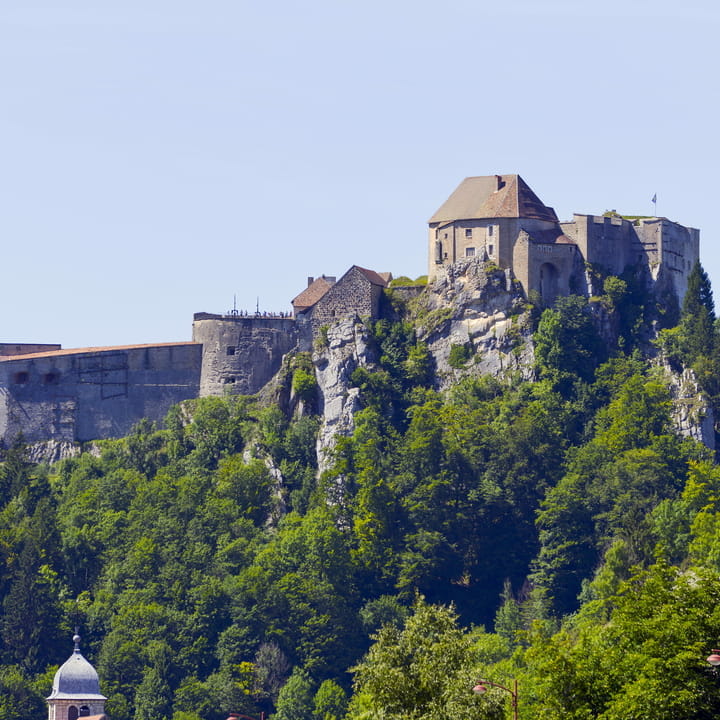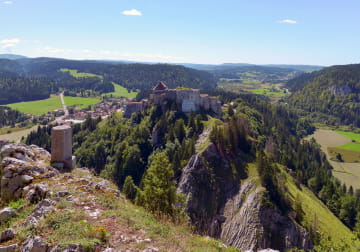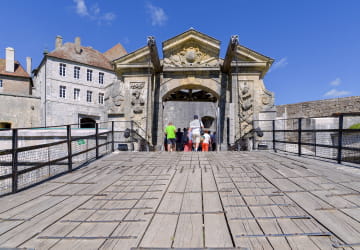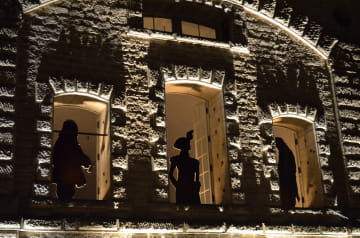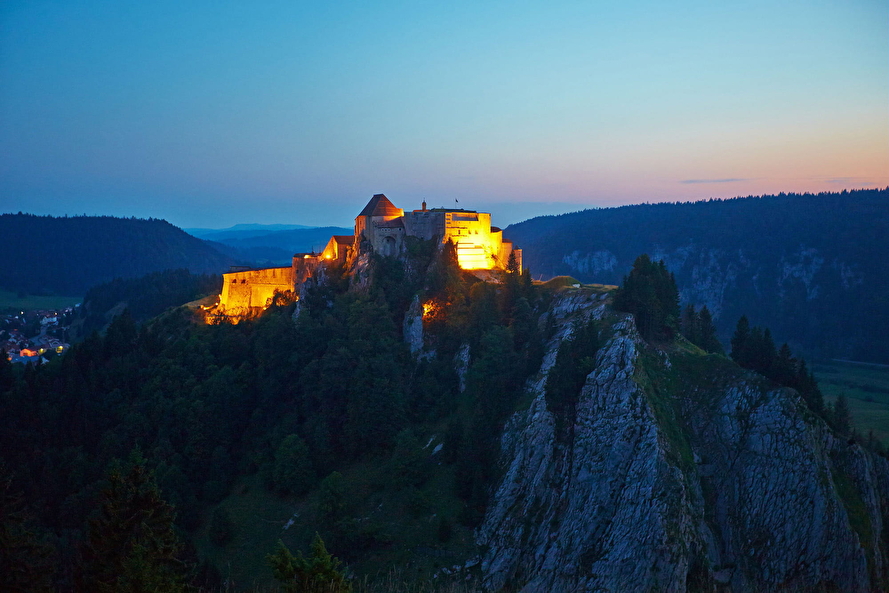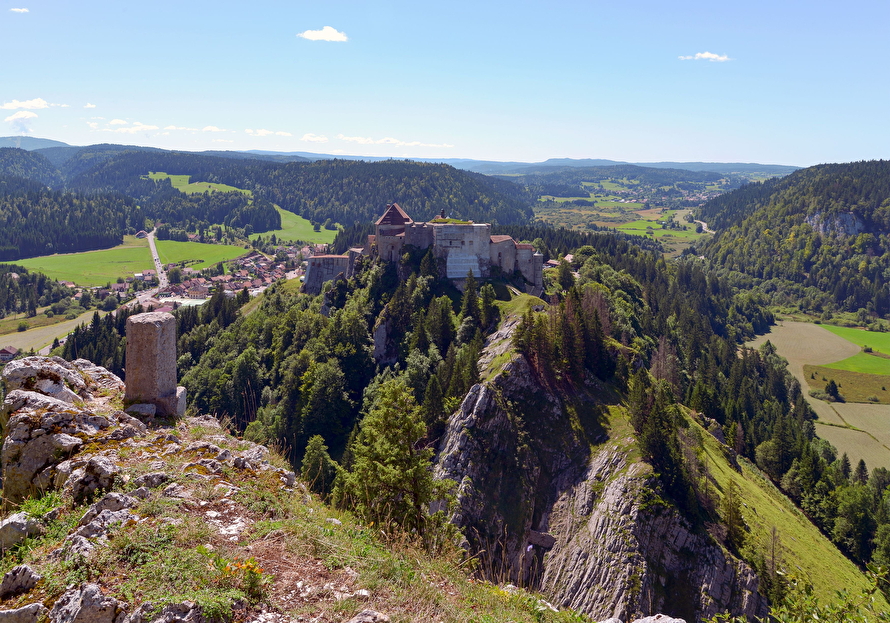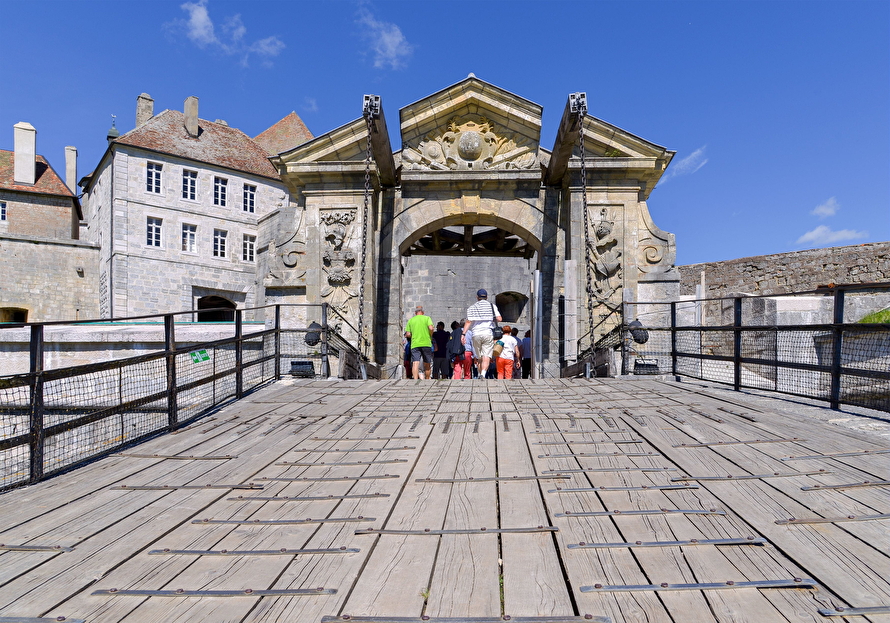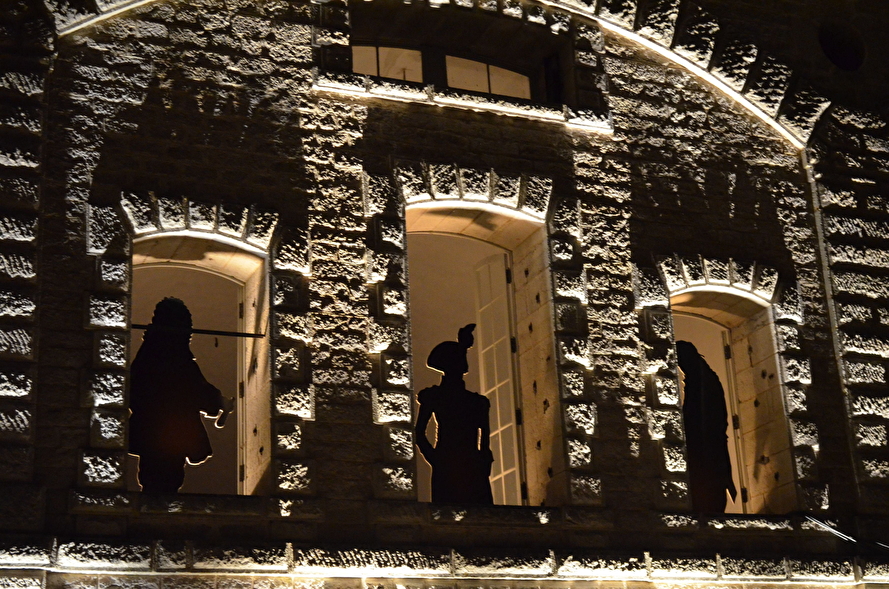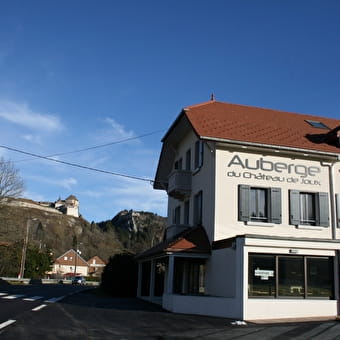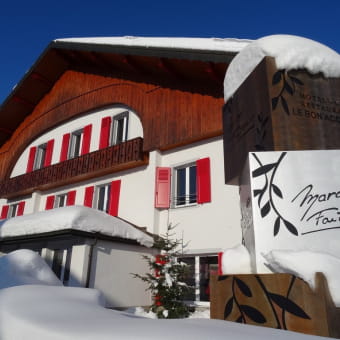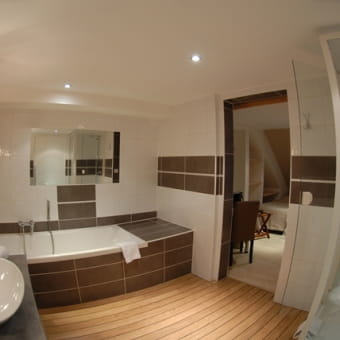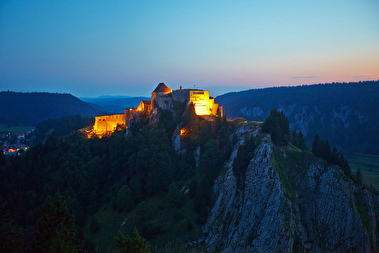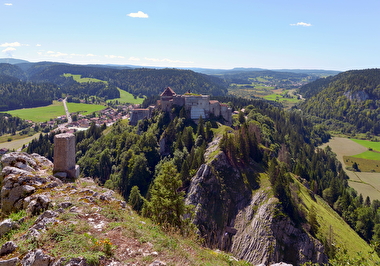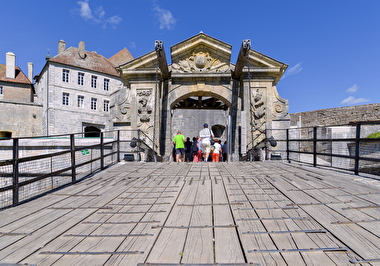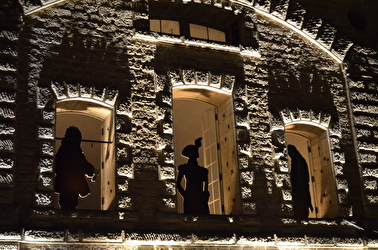Joux Castle, the Via Francigena tollgate
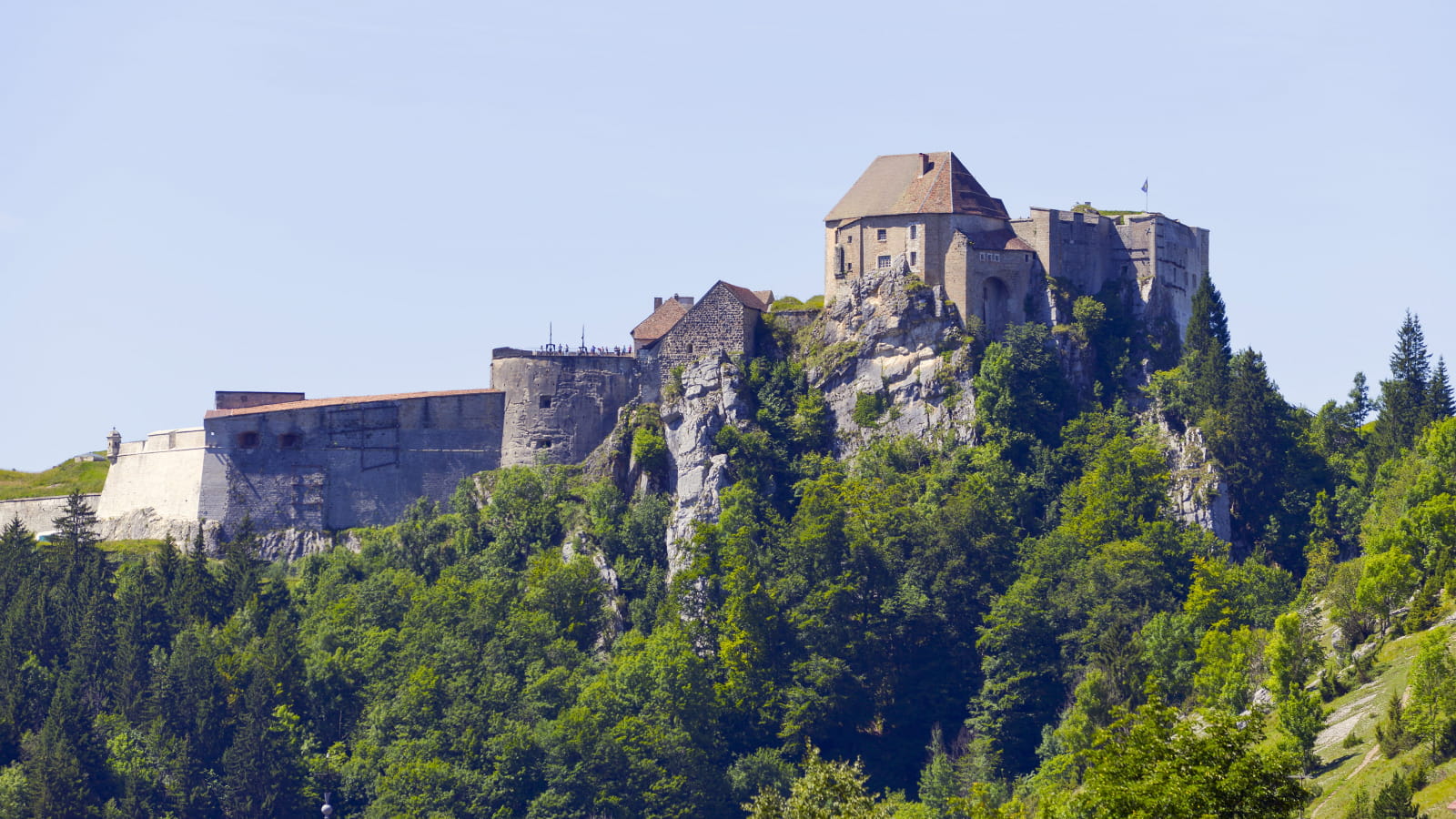
Over nearly a thousand years of existence, Joux Castle has had several lives... Initially a military fortress capable of stopping invading armies, it became a vital crossing point on European trade routes thanks to its ideal location on what was to be the Via Francigena between London and Rome.
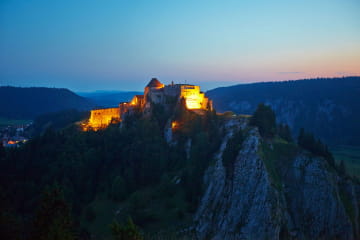
A coveted fortress
Because of its strategic location, fortifications have been added to Joux Castle many times. Indeed, it stands at the entrance to the Pontarlier cross valley, on the only "natural" and relatively easy path across Jura. For the kingdom of France, its purpose was two-fold: the passage of weapons in the event of war (this route had been known since the Roman Empire), but also the trading of commodities with neighbouring countries (mainly Switzerland and Italy) and the collection of a toll fee.
With the salt trade and production at the Grande Saline in Salins les Bains, the route became vital to exchanges (in every sense of the word) and the site had to be protected at all costs.
Thus, during the life of the castle, its walls were moved 5 times to enlarge, modernise or fortify the site... Until it eventually became the fortress that visitors can admire today.
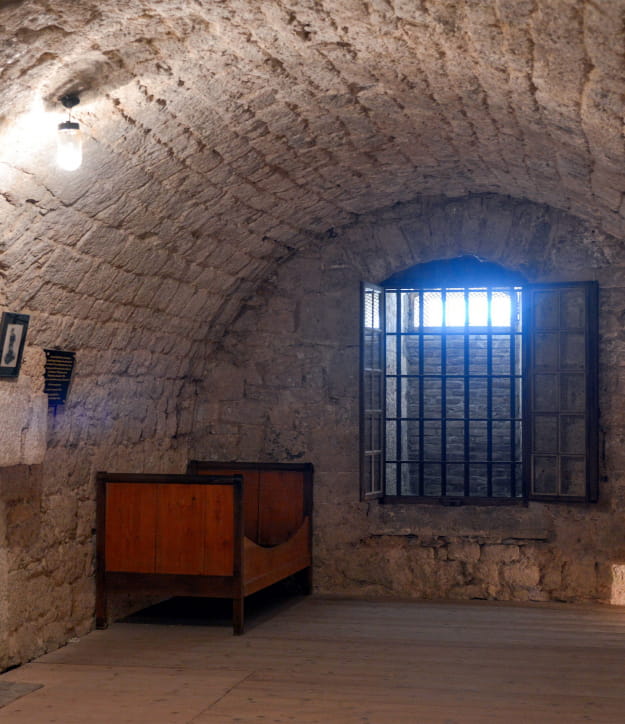
The fight against slavery
Once a prison, Joux Castle has known a few famous personalities from French history. Among them is Mirabeau, but the character we're going to tell you about is Toussaint Louverture.
As a black man and a freed slave, he became the military leader of rebel slaves on the island of Haiti, his homeland. He led the 1791 rebellion before acting as intermediary between the rebels and the French royalist army. A colonial war broke out between Spain and France for control of the island. Toussaint Louverture cunningly switched from one side to the other, depending on the promises each of them made.
Now a military leader of unquestionable strategic skills, Toussaint Louverture turned to politics. He sided with the French, who had made the appealing promise of freedom for everyone on the island! He later became commander-in-chief of the island's armed forces.
It could have all ended there... But Toussaint Louverture continued his secret manoeuvres with Spain, which was hardly to the liking of Napoleon Bonaparte! Deemed as dangerous, Toussaint Louverture was captured and locked up at Joux Castle, where he died in isolation... too soon to know about the abolition of slavery, for which he had struggled for so long!
Activities in the vicinity
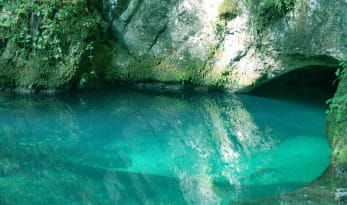
The Blue Spring
Just a short distance from the castle, you can discover the natural wealth of the Jura Mountains through the prism of an aptly-named spring, the Source Bleue! A feast for the eyes and your chance to take a few selfies that will surprise many people when you tell them you were in Doubs!
The Blue Spring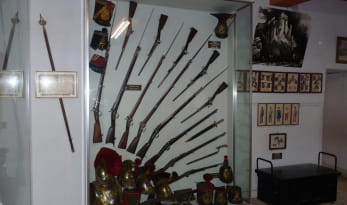
The Ancient Arms Museum
The municipal museum of Pontarlier houses a somewhat unusual display of ancient weapons. The 600 exhibited pieces (including forty or so very rare items!) will you take you through the history of French military weaponry from the 17th century to the present day.
The Ancient Arms Museum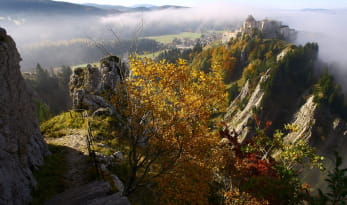
The Fort Malher viewpoint
From the other side of the Pontarlier cross valley you can enjoy a stunning view of Joux Castle. Your chance for a pleasant walk (wear comfortable shoes) to air your lungs and then admire the scenery.
The Fort Malher viewpoint





